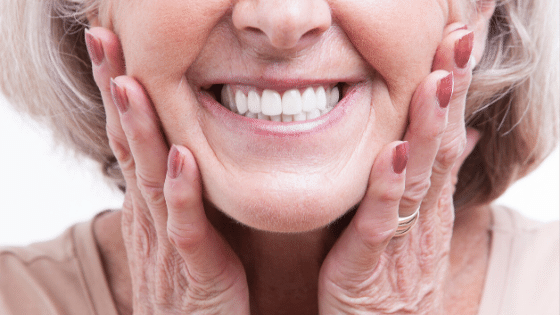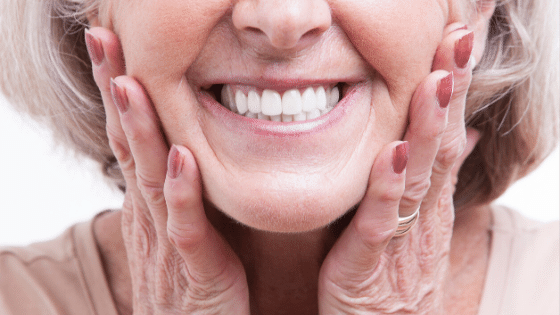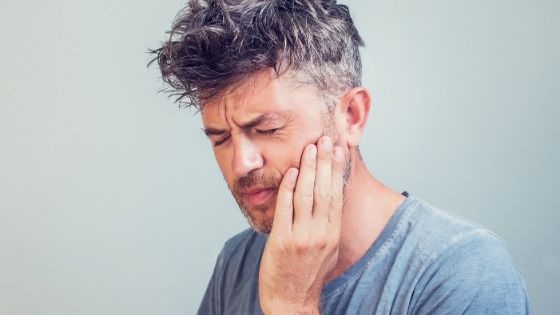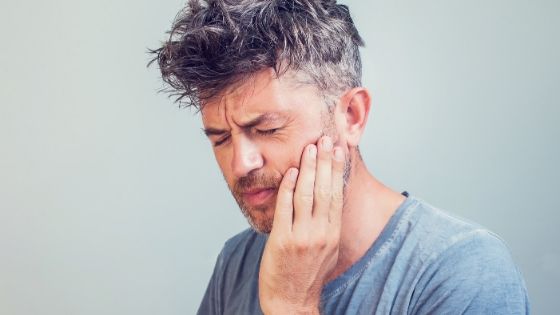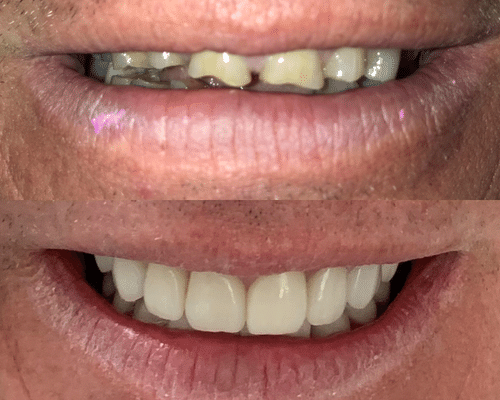Dental Health Changes with Age

While it is true that your dental health is likely to change as you age, it isn’t a given that as you grow older you will start to lose your teeth. Tooth loss has nothing to do with age but everything to do with diseases and other oral health problems. This article discusses some of the factors that may cause your oral health to change as you age and what you can do to preserve your oral health for your entire life.
Factors That Could Compromise Your Dental Health as You Age
Medication Increases the Risk for Dry Mouth
As you grow older, your risk for chronic diseases, such as diabetes, high blood pressure and arthritis increases. If any of those chronic diseases set in, you are likely to be placed on long-term use of different medications to manage that chronic disease that you are battling.
Dr. Christopher Green, a Parker CO dentist, explains that some of the medications prescribed to manage chronic diseases can cause dry mouth. This is a condition in which your salivary gland is unable to produce sufficient amounts of saliva.
When dry mouth sets in, you are more likely to develop a variety of oral health challenges since saliva that regulates the pH inside your mouth and flushes out bacteria is no longer available.
It is therefore advisable for you to work with your dentist in Parker CO to find ways to forestall the adverse effects of dry mouth before they set in if you are taking medication that causes dry mouth.
Changes in the Bony Substructure
As we grow older, our bones tend to become less dense and less strong. These changes can also be noticed in the dental structures. Dr. Andrei Ionescu points out that as the bony substructures change, your teeth may become crowded or develop occlusion problems. These problems can be dealt with at Green Dental Care, so keep in touch with your dentist in Parker CO as you go through these changes.
Gum Recession Can Set In
All the years of inadequate oral hygiene may eventually catch up with you as you age. As you advance in years, the accumulations of plaque and tartar beneath your gum line will eventually cause the gums to pull away from the teeth.
When this happens, the roots of the teeth will be exposed. As Dr. Christopher Green reveals, these roots are softer and are therefore more susceptible to decay. Many older people, therefore, battle with recurrent tooth infections arising from receded gums.
Your Immunity Gets Weaker
As you grow older, your immune system may no longer be as robust as it once was. Consequently, it will become harder for your body to fight off infections. Therefore, you are likely to develop oral infections more easily than you used to. This susceptibility is further compounded by dry mouth as discussed earlier.
How to Preserve Your Oral Health as You Grow Older
The experts at Green Dental Care in Parker CO recommend the following steps to help you preserve your oral health as you grow older.
Inspect Your Mouth Regularly
As already mentioned, many conditions can conspire to compromise your oral health as you grow older. Your first defense is to be vigilant and catch any problem early so that it can be corrected before it gets worse.
You can do this by inspecting your mouth regularly, such as once each week. For example, you can look at your mouth through a mirror and check if anything is unusual. If you see any lesions, cuts, discolorations or any other abnormality, contact Green Dental Care immediately so that our doctors can diagnose and treat the problem immediately.
Brush More Carefully
The weakened immune system of older people can heighten the risk of gum disease and other oral infections. Regular brushing and flossing can go a long way in reducing this risk.
Dr. Farhart, a dentist in Sterling Heights MI, emphasizes that you should be more meticulous when brushing in the evening before you go to bed because the hours spent sleeping are the times when saliva production is at its lowest.
If you didn’t brush well, oral bacteria may multiply rapidly while you sleep. This can cause all sorts of oral problems, such as gum infections, bad breath, and tooth decay.
A Balanced Diet is Key
You are what you eat, and this holds true even for your oral health. It is important for you to have a diet that is rich in all nutrients, like vitamins and minerals. This is so your body can have the building blocks it needs to keep you in peak oral and general health. When you follow a healthy diet, you will bounce back quickly from an infection. This is because there will be a sufficient supply of antioxidants to clear out the debris of microbes causing you to be unwell.
See Your Parker CO Dentist Regularly
The at-home efforts to keep your oral health at its best may not be sufficient if you don’t get professional dental services. In this regard, it is vital for you to visit Green Dental Care as often as recommended. This way the dental care team can check your oral health and treat any problem long before it becomes severe. These visits also provide an opportunity for you to get timely advice on what changes need to be made to your oral care routine in light of any changes that you are going through. An example is taking medication for a chronic condition that you have recently been diagnosed with.
While aging comes with its own set of challenges to your oral health, it is still possible to enjoy great dental health for a lifetime. Contact Green Dental Care to learn more about how we can be of help in preserving your oral health. Remember, you are never too old to undergo a needed procedure, whether it is cosmetic or restorative.


